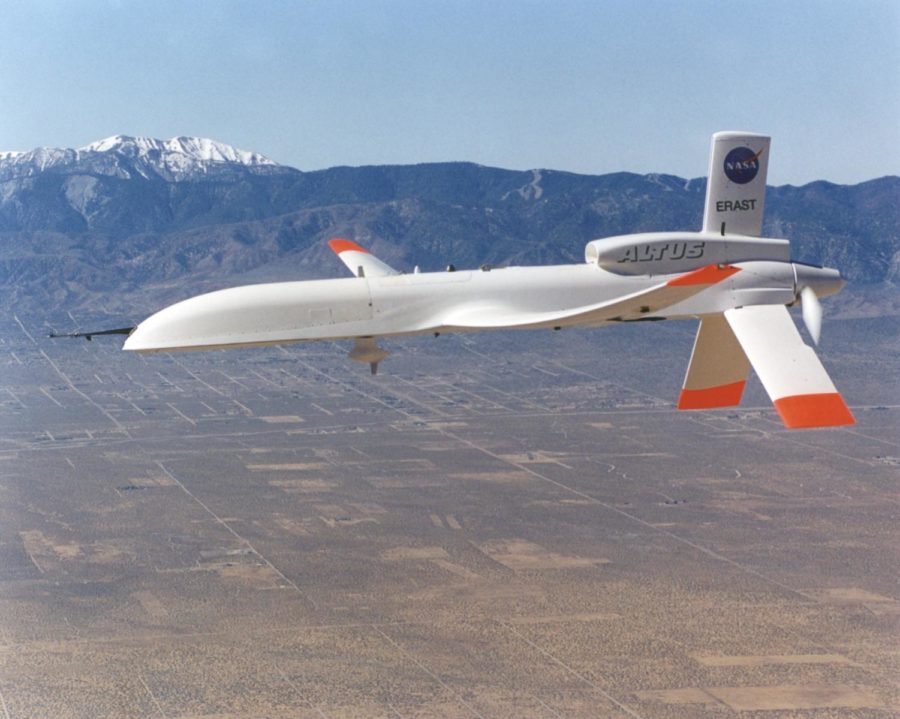Glawe: Push the envelope of scientific knowledge
That was once a time when NASA and the astronauts of the “Right Stuff” were revered. Alas, this is no longer the case. That sort of barrier punching, at the time our greatest endeavor, is now a forgotten cause.
March 25, 2014
There is a popular phrase used today that finds its origin — an origin forgotten by mutterers of the phrase — in the book “The Right Stuff” by author and journalist Tom Wolfe. That phrase is “pushing the envelope.” It means to go beyond the boundaries and limits of performance or to go above and beyond what was expected.
Although Mr. Wolfe did not coin the saying — the “flight envelope” was originally technical jargon for the limits of an aircraft — it is rather unfortunate that we no longer assume the character of those words.
Shouldn’t the phrase itself be reserved for those daring enough to push the limits of human capacity? The test pilots of the “Right Stuff” were, after all, constantly pushing the envelope, daring the aircraft they flew at the risk of their own lives.
That was once a time when NASA and the astronauts of the “Right Stuff” were admired. Alas, this is no longer the case. That sort of barrier punching, at the time our greatest endeavor, is now a forgotten cause.
The advancement of science and technology, the willingness to break through the boundaries of human understanding, requires us to be daring. If we are to truly push the envelope, as we once dared, we must surrender our credulity and embrace the principles of science.
That is, however, difficult to accomplish when the public has become disenchanted and the government reduces its investment.
For instance, federal spending in research and development — the driver of technological and scientific discovery — has fallen sharply from $165.5 billion to $133.7 billion this year. A research-oriented institution such as Iowa State University should surely jump to protest.
The decrease in spending is due in part to confusion surrounding the purposes of federal spending — the wrongdoings of austerity need not be reiterated at this time — but there is a shortfall of trust lent by the public to the scientific community that could prove to be a significant driver of disinterest.
For instance, a HuffPost/YouGov poll found that “only 36 percent of Americans reported having ‘a lot’ of trust that information they get from scientists is accurate and reliable.” Furthermore, 51 percent of those polled trust that information “only a little.”
Much of the public distrust falls upon major political issues such as evolution and climate change — opposition to which is largely driven by religious and private interests. Why is it that science, a field dedicated to and molded by a never-ending scrutiny of itself, should suffer the taint of “public perception?”
There really should be a rule that those who disrespect the mental labor of science should not be allowed the privilege of its products. We will then see how the dissenters fair.
Science appeals to our critical faculties through its greatest gift — the scientific method. Embracing this is the key to achieving scientific solidarity, and truly pushing the envelope of our minds. Getting people to accept that fact is of extreme importance.
Science advocate and astrophysicist Neil deGrasse Tyson appeared on the Colbert Report earlier this month to discuss his new show “Cosmos: A Spacetime Odyssey.” Throughout the interview, the host Stephen Colbert asked satirical questions which adequately represented much of the bland opposition to scientific principles.
Neil deGrasse Tyson calmly and brilliantly responded to Colbert’s contentions. All defenders of science should take up the tone and demeanor in which he conducted the conversation. Countering the distrust in scientific principles, Tyson said, “Once a scientific truth emerges from a consensus of experiments and observations, that is the way of the world.”
He goes on further to eloquently reiterate the feeling of scientists towards non scientific dissension, “When different experiments give the same result, it is no longer subject to your opinion. That’s the good thing about science — its true whether or not you believe in it. That’s why it works.”
Adding to that, science will go on with or without you. It will advance, tried and true, under great scrutiny and self-checking, despite the mob of unscientific opposition. But if we are to advance as a civilization, we must fight against our humanly shortcomings and come to a resolution on the matter.
As Adam Smith once wrote, “Science is the great antidote to the poison of enthusiasm and superstition.” Lets break free from what William Blake called our “mind-forg’d manacles,” discover the truths of our world, and once again push the envelope of knowledge and understanding.







